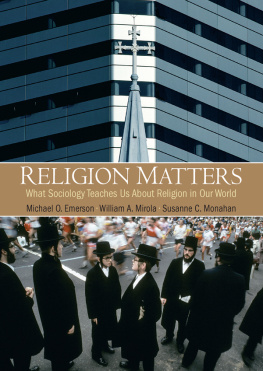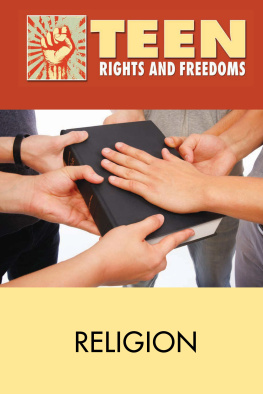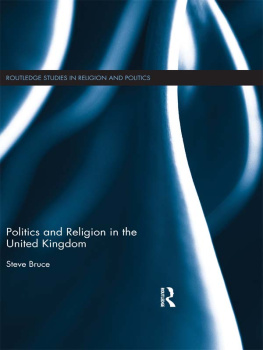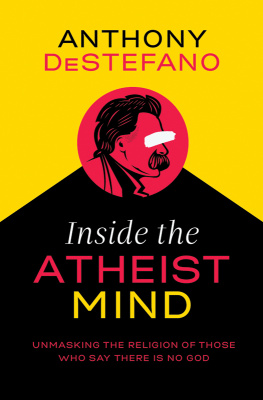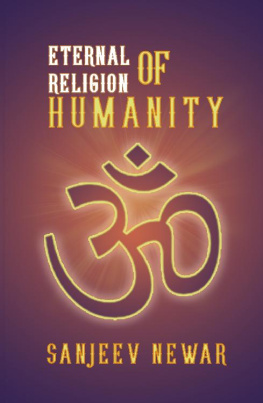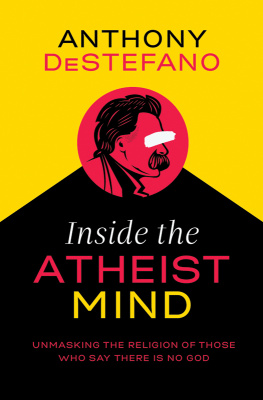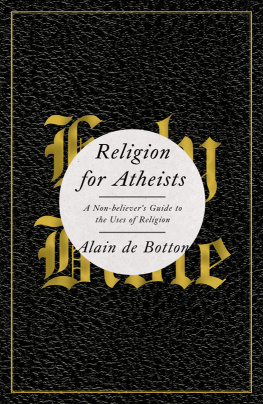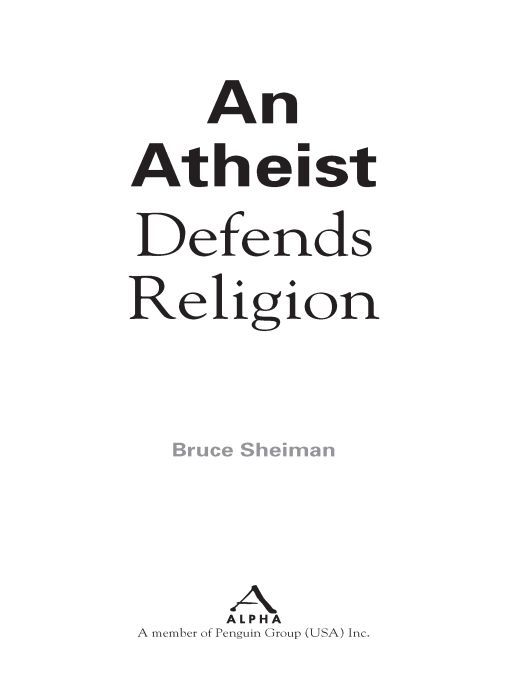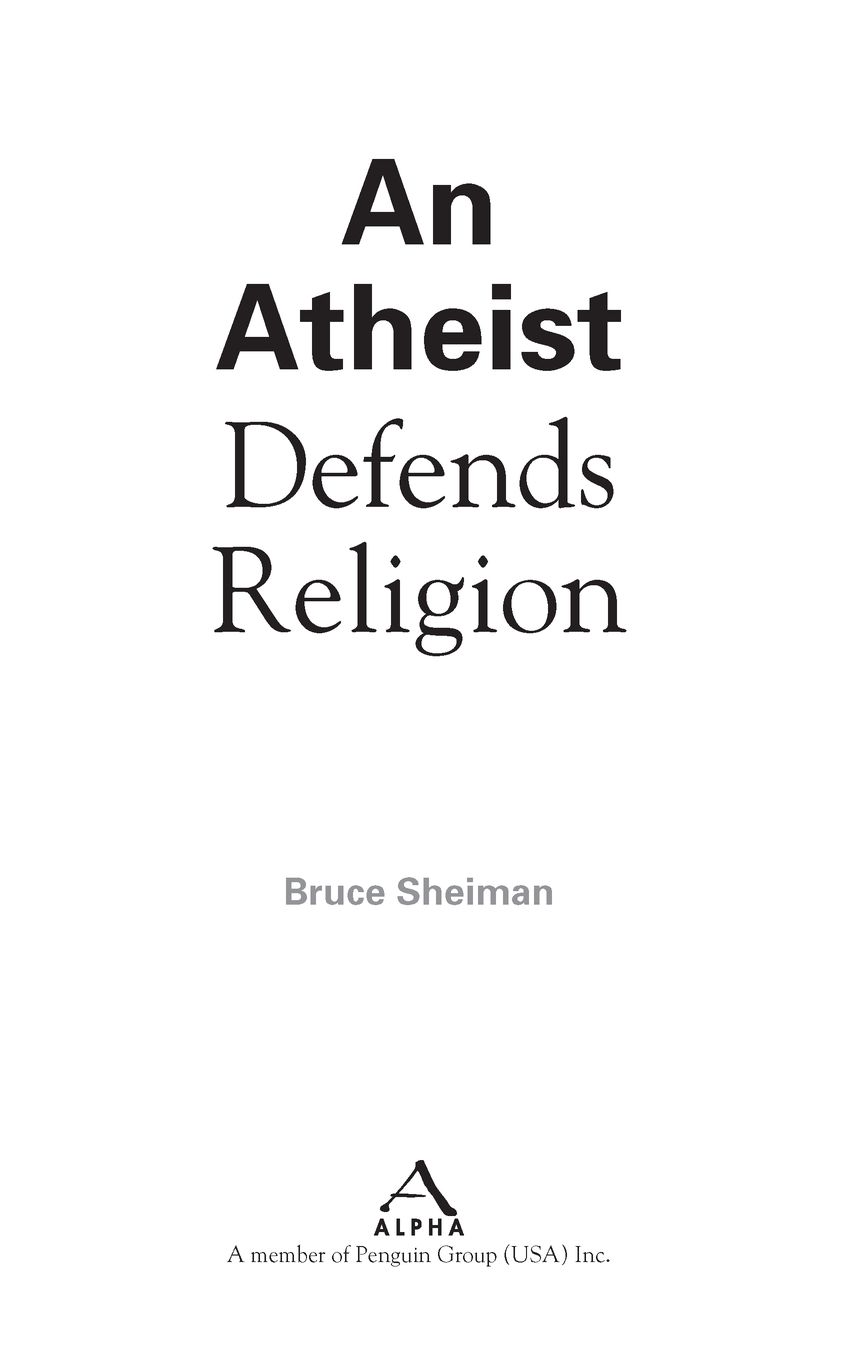Table of Contents
This book would not have been possible without the continued love and support of my fiance Sherrie Casali and my mother and father.
Introduction: The Great Debate Stalemate
The theism-atheism debate has been dominated for centuries by two positions: Hard-core believers fervently committed to the argument that there is a personal God who created the world and offers humans salvation; and militant atheists vehemently driven to repudiate not only God but also religion as a cultural institution. As if to accentuate and reinforce this polarity, we have had a plethora of recent books presenting atheists tried-and-true position theres no proof for God and theists predictable counterclaim theres no proof that theres no proof.
I have found that when religious apologists strive to demonstrate the existence of a divine creator in light of what science reveals about the natural world, they engage in rationalizations that are unfathomable to an unbeliever. And atheists express their side of the debate by resorting to a polemical subterfuge, using science to claim that God does not exist. (Science, as I will explain, is actually silent about the existence of God.)
In neither case is the rationale very convincing to the other side. What neither theists nor atheists are prepared to admit is that after more than 2,000 years of back-and-forth proofs and counterproofs, this debate has reached an insolvable impasse.
Going Beyond the God Question
The time has come to reach beyond the God question and accept that it can never be resolved to the satisfaction of either side. But the discussion need not end there. We are still left with the important issue of the value of religion itself. And this is a debate that religion can win.
An Atheist Defends Religion is a robust response to the numerous recent books by unbelieverswith a twist. I am an atheist. But unlike most atheists who embrace their rejection of God as a sign of intellectual triumphalism, I assert that such disbelief is maladaptive and that some form of theism is the overwhelmingly preferable option. An Atheist Defends Religion defines a unique middle position in the theism-atheism controversy that affirms the belief in God without getting mired in the interminable debate about the existence of God. And I must emphasize, this is a first. To date, there has not been a mainstream book defending religion as a cultural institution, irrespective of the God question.
An Atheist Defends Religion is not for the dogmatic minority on either side of the God debate. It is intended for the moderate majority of religious America: people who are not militant atheists or literalist believers; people who accept that science and religion are essential for a fulfilling life.
Defending Religion, Not God
In this book I provide a more thoughtful interpretation of the theism-atheism debate than has hitherto been offered. I am not affiliated with any religious doctrine or partisan perspective. Consequently, this book is not dominated by one extremist view or the other.
I must disclose that I am not a person of faith: I do not feel the majesty or mystery of God. But neither do I stridently repudiate God. Indeed, there is a part of me that wants to believe in God. That makes me an aspiring theist. And I want to believe in God because, on balance, religion provides a combination of psychological, emotional, moral, communal, existential, and even physical-health benefits that no other institution can replicate.
This book, as a consequence, is not a defense of God; rather, it is a defense of the belief in God, and of religious belief in general. And this book will not respond to atheism with a list of tried-and-true proofs of Gods existence. Rather, it will persuasively show that atheism is an impoverished belief system, and that, individually and collectively, we are much better off with religion than without it.
It is very much like the distinction William James made in The Varieties of Religious Experience between a healthy-minded and a sick soul temperament. Both personalities, curiously, live in the same world. But in the former, optimism and openness prevail; people essentially see the world as loving and inspiring. In the latter, pessimism and despair predominate; people largely see the world as tragic and hopeless.
For most people this dichotomy refers to the very real difference between religious belief and the antibelief of atheism.
My Personal Journey to Ambivalence
My own spiritual and intellectual journey has been circuitous, but increasingly I find myself on a path that brings together belief and unbelief. I grew up in a religious-neutral, theologically confused household. My mother was marginally Christian and my father was barely Jewish. I went to a Jesuit college and learned to do what Jesuits doquestion everything, including religion. Self-reflection and critical reasoning were the forces that molded me into an obstinate atheist.
Critical reasoning is our educational systems most cherished practice. But it has a dark side. At first it leads to relativism, based on the assumption that all cultural truths are equally valid. In time, critical reasoning takes us a step further, to the view that all beliefs are equally dubious, equally subject to skepticism. And so it was with my already faint religious orientation.
For me, the core idea of religion is belief in a Transcendent Spiritual Reality that exists apart from the material world we experience day-to-day. In accepting that my here-and-now existence is all there is, in either Western or Eastern traditions, I qualify as an unbeliever. Unlike other atheists, however, I have never resorted to the reverse psychology of making my unbelief into a virtue.
Being an atheist is not something that I rationally or deliberately chose. I did not think through all the competing belief systems and choose unbelief. Its just something that I am. I must admit, however, that the more I understand the world as revealed by science, the more I find the materialist and reductionist explanation for our human destiny terribly devoid of depth, value, and meaning. This offends not my religious sensibility (of which I have none), but my existential vanitythe strongly held personal view that my life counts in the scheme of things. As a consequence, I am an atheist who is sympathetic to religious aspirations and who is prepared, if not to defend God (in no place in my book do I assert that God exists), then to defend the belief in God.
Red Pill and Blue Pill
No work of popular culture better depicts the world envisioned by atheists than the movie The Matrix. In it, the character Morpheus says to our hero, Neo, The Matrix [read: religion] is the world that has been pulled over your eyes to blind you from the truth. It is a prison for your mind. When pressing Neo to take the Red Pill that will reveal the full extent of the Matrixs deceit, as opposed to the Blue Pill that will perpetuate the delusion, Morpheus says, All Im offering is the truth, nothing more.


